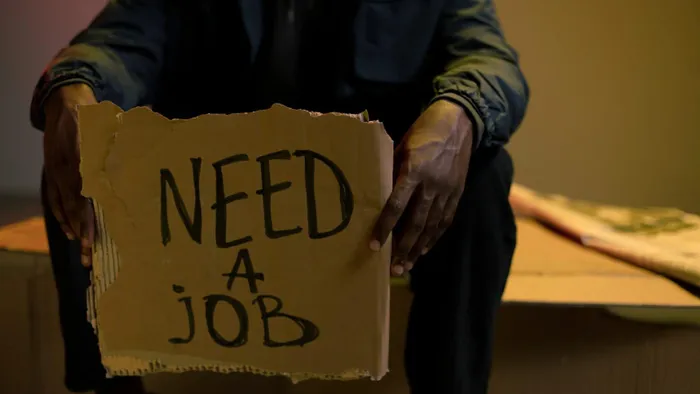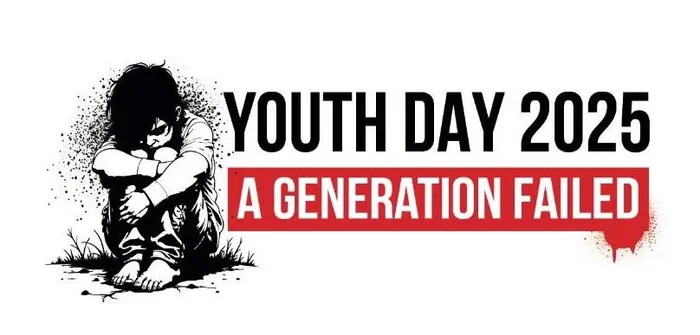Youth Day: Are we celebrating a lie?
Opinion

In the first quarter of this year, more than 62% of young people aged 15 to 24 were unemployed. That’s not a statistic, it’s a scream.
Image: Ron Lach/Pexels
ON Monday, South Africa will once again light candles, wave flags, and sing tributes in honour of the young people who stood fearlessly against apartheid during the 1976 Soweto Uprising.
There will be speeches, ceremonies, and commemorations. Youth Day, we are told, is a celebration of progress and promise. But as we stand in 2025, I ask: What exactly are we celebrating?
For millions of young South Africans, this country has become a place of despair. Not dignity. Of betrayal. Not an opportunity. And this Youth Day, I cannot pretend otherwise.
Let’s confront the truth: South Africa’s youth have been abandoned by their government.
In the first quarter of this year, more than 62% of young people aged 15 to 24 were unemployed. That’s not a statistic, it’s a scream. That’s two out of every three young people without a job, without experience, and a future. If we widen the bracket to include youth up to 34 years old, unemployment still hovers at a crushing 46.1%.
Think about that. Nearly half of our nation’s potential, our energy, innovation, and hope, is sitting idle, humiliated, anxious, and excluded. We are raising a generation who are being taught by this economy and this government that they are disposable.

The youth of 2025 are facing several challenges, from high employent rates to substance abuse.
Image: File
No amount of Youth Day posters can cover that up.
While our politicians prepare Youth Day speeches, our most vulnerable children continue to be raped, abused, sold, and discarded in the shadows of our poorest communities.
Last year alone, more than 26 000 cases of child abuse were reported, a horrifying number, and likely an undercount. Nearly 10 000 sexual abuse cases were formally registered. These are not distant crimes. They are happening daily in communities where police don’t arrive, social workers are overwhelmed, and shelters are full or non-existent.
And yet the state fails to respond. Fails to protect. Fails to act.
One in three children in South Africa has experienced sexual abuse. One in three! How can we call ourselves a nation in honour of the youth when we cannot even guarantee their safety in their own homes, schools, and communities?
In too many schools, classrooms are overflowing, not with opportunity, but with chaos.
In Cosmo City, Grade I learners are crammed — 87 to a single class. In some rural and township schools, that number balloons to more than 100 learners per teacher. Imagine trying to teach a class like that. Imagine trying to learn in it.
Our teachers are burning out. Exhausted, unsupported, and underpaid. Many haven’t seen an increase in resources or staffing in years. And still, they show up. Still, they try to teach.
But passion cannot substitute for policy. And commitment cannot cover for collapse.
We say Youth Day honours the brave young souls of 1976. But we disrespect their memory when we allow a new generation to suffer in silence. The youth of 1976 demanded quality education, dignity, and a future. Today, their grandchildren inherit broken schools, unsafe communities, and a job market that has no space for them.
So what are we celebrating?
Are we honouring the lives of those who died in Soweto by ignoring the cries of a raped child in Delft? Are we waving flags in memory of Hector Pieterson while teachers collapse from fatigue in overcrowded classrooms? Are we really singing about progress while over half of our youth cannot find a job?
Let us not insult the past with false celebrations.
If our leaders truly care about the youth, then Monday must be a moment of reckoning, not rhetoric. We demand:
- Immediate and sustained investment in education infrastructure. No child should learn in a class of 100.
- A fully funded national child protection strategy. With real social workers. Real shelters. Real intervention.
- Youth employment policies that create meaningful, long-term work. Not just short-term stipends, but real economic inclusion.
- And above all, we demand political will — the kind of courage our youth showed in 1976, to confront and fix the systems that are failing our young people every single day.
I will not celebrate Youth Day this year. I will mourn it. I will stand in solidarity with every young person who goes to sleep hungry, violated, unseen. I will remember the children who were brave enough to rise in 1976, and I will ask, what would they think of us now?
To South Africa’s youth: We see you. We hear you. You are not forgotten. But you have been failed. Now is the time to stop pretending. The truth is hard, but it must be told.
We owe you more than a public holiday. We owe you a future.
* Adri Senekal de Wet is the editor-in-chief of Independent Media.